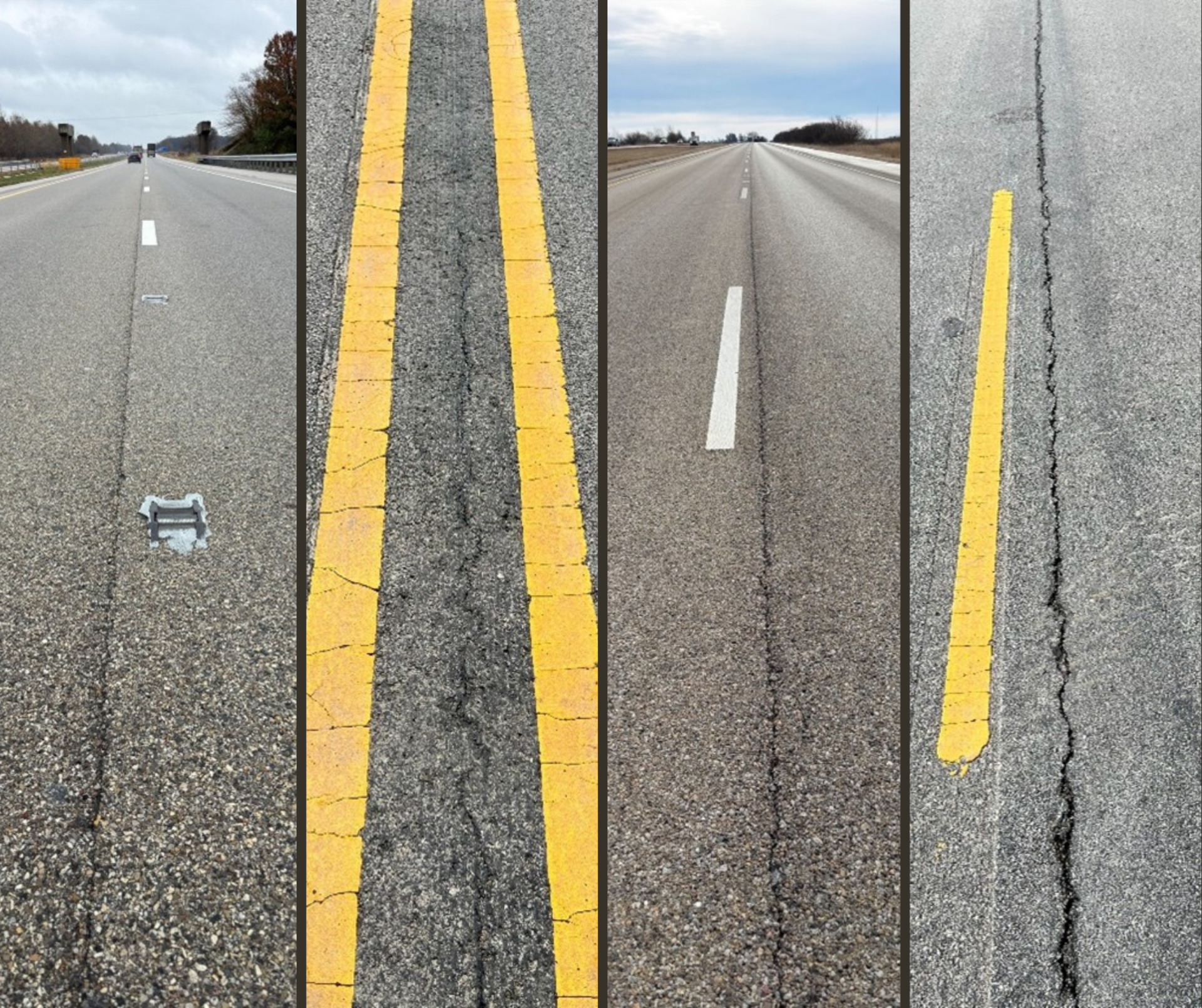Written by Naarah Holloway
The longitudinal joint is the Achilles' heel of every paved road. When elements like water and air enter the longitudinal joint through air voids, the road condition can worsen quickly. This can lead to many issues such as potholing, rutting, cracking, and more.
Applying a void reducing asphalt membrane (VRAM) before road construction can increase the road’s longevity and durability by filling air voids otherwise present in the longitudinal joint.
A VRAM was recently applied on Wiltshire Road in Berkley, Michigan.
Project Details
- Owner: City of Berkley
- Prime: Springtime Excavating
- Paving Contractor: AI’s Paving
- Applicator: Road Fabrics Inc. (RFI)
- Location: Oakland County, Michigan
- Date Constructed: November 8, 2023
VRAM Observations
VRAM application began at 8:00 a.m. on 0.75 miles of Wiltshire Road at the eventual centerline joint location starting at Coolidge Highway. Personnel present on this project included Illiana’s John and Paul Jr., AI’s Paving’s Joshua, Hubbell, Roth, & Clark (HRC) Engineering Firm’s Josh and Asphalt Materials Inc.’s (AMI) Vince Venturella and Chad Crosby.
The ambient temperature was 37°F.
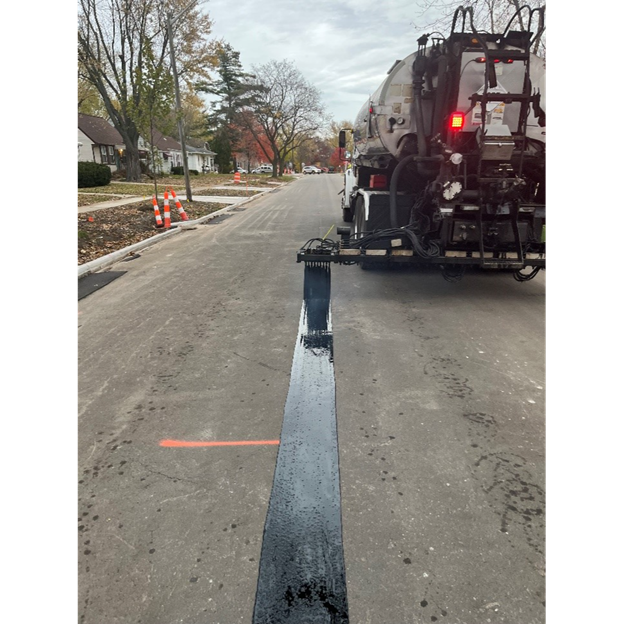
VRAM Application
VRAM Application
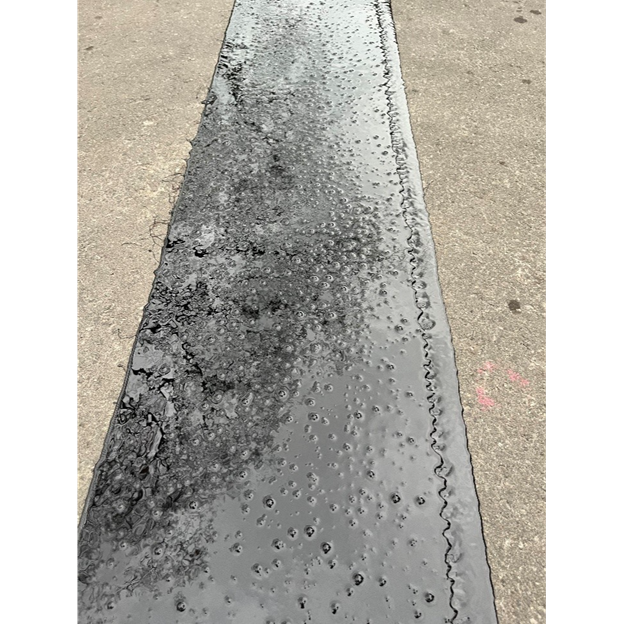
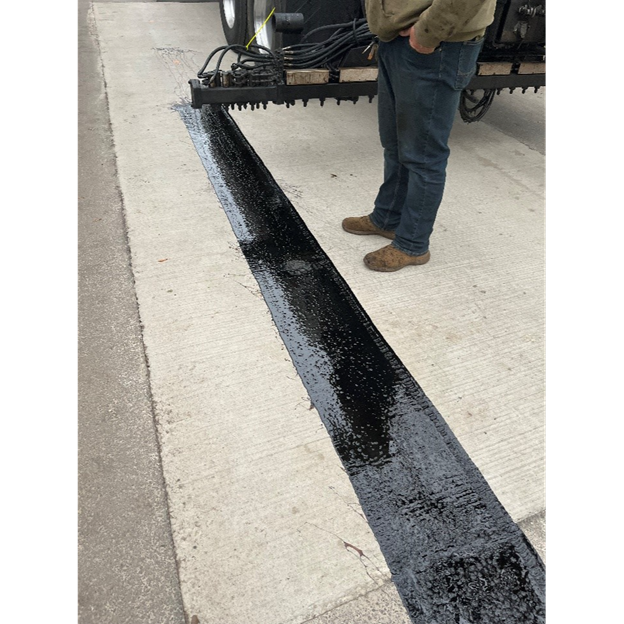
Centerline Joint
Centerline Joint
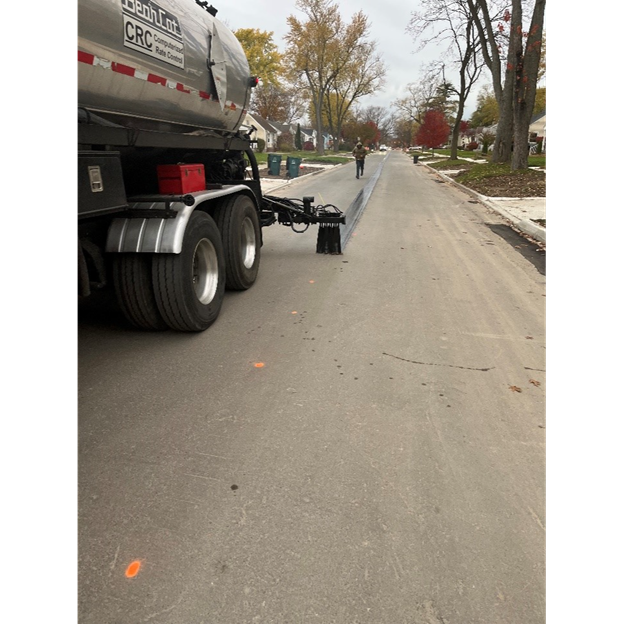
Conclusion
The VRAM application was successfully applied by RFI. Paving was scheduled to begin on November 9 but rain pushed it back to November 10.
For a closer look at projects that have incorporated a VRAM during construction and to discover the benefits of longer-lasting roads in terms of cost savings, time efficiency, and safety, you can explore our interactive map here.
Editor’s Notes:
J-Band®, CCAP® and T-Bond® are registered trademarks of Asphalt Materials, Inc. AMIBIND™, AMIBOND™, AMICYCLE™, AMIGUARD™ and AMISEAL™ are trademarks of Asphalt Materials, Inc.
J-Band® was created in the labs of the Heritage Research Group (HRG) and is a product of Asphalt Materials, Inc. (AMI). To learn more about J-Band, visit www.thejointsolution.com


